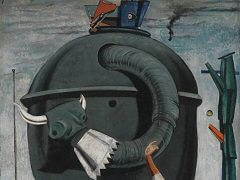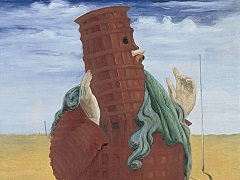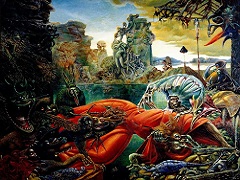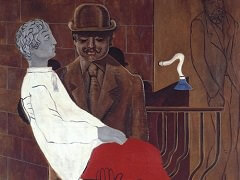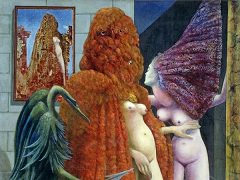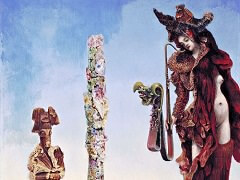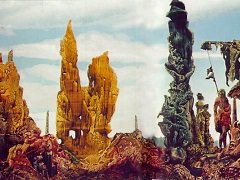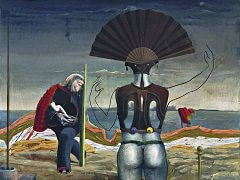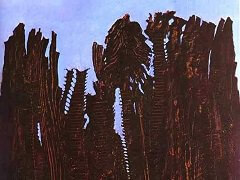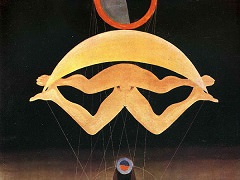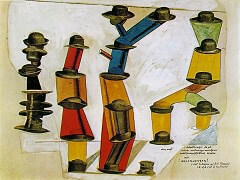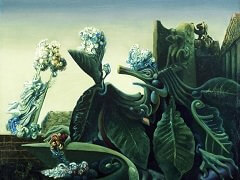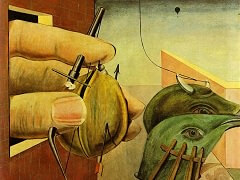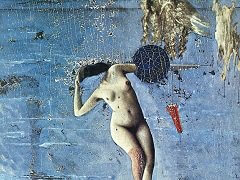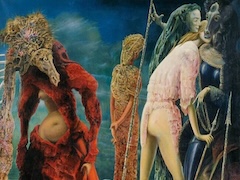The Triumph of Surrealism, 1973 - by Max Ernst
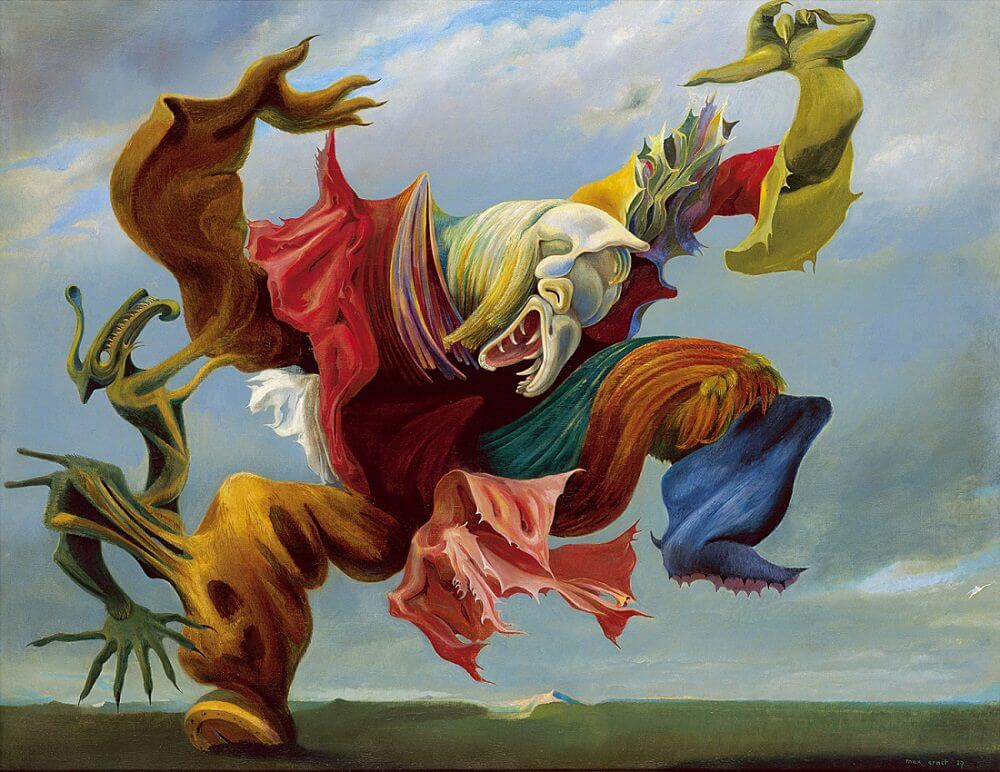
The Triumph of Surrealism was painted by Max Ernst in 1937. The painting's initial name is The Angel of Hearth and Home, and it was retitled by Ernst in 1938. Ernst created this painting for the Exposition international du surrealism which took place at the Galerie de Beaux-Arts in Paris. This painting is one of few in his career that were inspired from political events. Ernst painted The Triumph of Surrealism shortly after the defeat of the Spanish Republicans in the Spanish Civil War. In this conflict, Spanish fascist leaders were supported by Germany and Italy in their victory. Ernst's goal was to depict the chaos that he saw spreading over Europe and the ruin that fascism brings to countries.
Ernst uses the title of this painting to aid in evoking a sense of chaos and destruction. The use of the word angel confuses an observer at first due to the abstract and grotesque figure that is the painting's subject. He forces the viewers mind to think of these elements in a biblical sense. Ernst draws his audience to imagine the angel in the painting as if it were the angel of death from the seven plagues or a beast unleashed at the end of days. It appears that Ernst is even provoking his audience to question their own beliefs by calling such a figure an angel.
Ernst's Surrealist paintings are steeped in Freudian metaphor, private mythology, and childhood memories. One of his major themes centered on the image of the bird, which often incorporated human elements. Although some of these birds look benign, their mere presence appears to be ominous. Consider that the The Angel of Hearth and Home was retitled by Ernst in 1938 as The Triumph of Surrealism, "a despairing reference to the fact that the surrealists with their Communist ideas had been unable to do anything to resist fascism."
Ernst's ironic title functions according to Freud's Jokes and their Relation to the Unconscious, which reminds us that a "favorite definition of joking has long been the ability to find similarity between dissimilar things - that is, hidden similarities." - a quote by Freud from his favorite Jean Paul.

